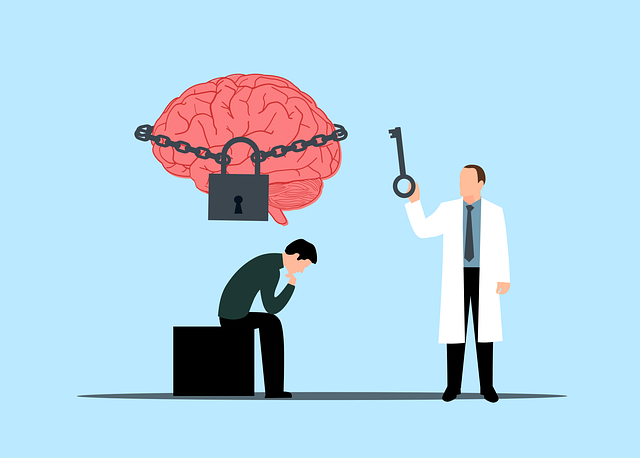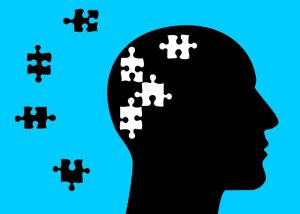Mental health counseling is a crucial lifeline for adolescents facing unique challenges like anxiety, depression, and peer pressure during their formative years. This safe space equips teens with coping strategies, fosters self-awareness, and builds resilience through evidence-based therapeutic methods. Early access to mental health services, including online counseling, is vital for smooth transitions into adulthood, addressing issues like eating disorders and substance abuse. Integrating family therapy, peer support, and innovative technologies enhances these services, challenging stigma and empowering adolescents with mental fortitude.
Adolescent mental health services are a vital component of comprehensive healthcare, addressing the unique challenges faced by young people. This article explores various aspects of supporting adolescents’ well-being, including understanding mental health issues in this age group and the critical role of mental health counseling. We delve into early intervention strategies, accessible services, therapeutic techniques, and innovative approaches like integrating family and peer support along with technology’s impact on therapy. By examining these key areas, we aim to enhance our understanding and improve adolescent mental care.
Understanding Adolescent Mental Health Challenges

Adolescence is a period of significant growth and development, but it can also be a time when young people face unique challenges to their mental well-being. Understanding these challenges is crucial in providing effective support. Many adolescents struggle with issues such as anxiety, depression, and stress, often stemming from academic pressures, peer relationships, and identity formation. These problems can be exacerbated by the constant exposure to social media and the high expectations placed on them.
Mental health counseling plays a vital role in navigating these challenges. It offers a safe space for adolescents to express their feelings and work through personal difficulties. Through various therapeutic approaches, counselors help young individuals develop coping strategies, enhance self-awareness, and build resilience. Early intervention and access to mental health services can significantly impact an adolescent’s ability to overcome these obstacles and foster a healthier transition into adulthood.
The Role of Mental Health Counseling in Adolescence

Mental health counseling plays a pivotal role in adolescent development by providing a safe space for teens to explore and express their emotions, thoughts, and behaviors. Adolescence is a period of significant change and uncertainty, often marked by stress, anxiety, and sometimes severe mental health disorders. Trained counselors offer evidence-based therapeutic approaches tailored to address these challenges. They help adolescents navigate through issues like depression, anxiety disorders, eating disorders, substance abuse, and even suicidal ideation.
Through active listening, empathy, and age-appropriate techniques, counselors facilitate personal growth, build resilience, and enhance coping strategies. This early intervention can prevent more severe mental health issues in adulthood. Regular counseling sessions enable adolescents to develop self-awareness, improve communication skills, and foster healthy relationships, all of which are crucial for their overall well-being and successful transition into adulthood.
Identifying Signs and Symptoms: Early Intervention

Recognizing signs and symptoms of adolescent mental health issues is crucial for early intervention, a key factor in effective treatment. Changes in behavior, mood swings, withdrawal from social activities, and persistent feelings of sadness or anxiety can indicate underlying problems. Parents, caregivers, and peers should be vigilant, as these signals might point to conditions like depression, anxiety disorders, or even more severe issues such as psychosis. Early recognition allows for timely access to mental health counseling services, which are vital in supporting adolescents during this pivotal phase of development.
Through open dialogue and observation, adults can play a significant role in identifying the struggles faced by teens. Encouraging honest communication and creating safe spaces for expression can facilitate the process of recognizing signs. Once identified, prompt action ensures that adolescent mental health services, including counseling, therapy, or specialized support programs, are readily available to address the individual’s needs effectively.
Accessible Adolescent Mental Health Services

Accessible adolescent mental health services are a vital component in addressing the unique challenges faced by young individuals. With the increasing recognition of mental health issues among teens, there’s a growing need for comprehensive and easily accessible counseling. Many traditional therapy models often fall short in catering to adolescents’ specific needs, such as scheduling conflicts with school and limited confidentiality expectations.
Innovative approaches, like online mental health counseling, are emerging as game-changers. These services offer flexibility, allowing teens to access counseling from the comfort of their homes. Online platforms provide a safe space for open discussions while ensuring privacy, which is crucial for building trust with young clients. Moreover, digital tools can personalize therapy experiences and enable continuous support, fostering better mental well-being outcomes for adolescents.
Therapeutic Approaches for Youth

Therapeutic approaches tailored specifically for adolescents play a pivotal role in addressing their unique mental health challenges. Mental health counseling, for instance, has proven to be an effective strategy, focusing on building coping mechanisms and enhancing emotional resilience. Through one-on-one sessions, counselors create safe spaces for youths to explore and express their feelings, thoughts, and experiences without judgment. This process encourages self-awareness, promotes healthy decision-making, and equips them with tools to navigate life’s stressors.
Group therapy is another powerful method that fosters a sense of belonging and peer support. In a group setting, adolescents can share their struggles, learn from peers’ experiences, and develop social skills. This collective approach not only improves individual mental well-being but also cultivates empathy and understanding among the participants. By combining individualized counseling with group therapy, adolescent mental health services offer a comprehensive and supportive environment conducive to long-term recovery and personal growth.
Integrating Family and Peer Support Systems

Integrating family and peer support systems is a pivotal strategy in enhancing adolescent mental health services. Family therapy sessions can provide a safe space for open communication, helping young individuals navigate their emotions while fostering stronger familial bonds. By involving parents or guardians in mental health counseling, professionals can offer guidance tailored to the unique dynamics of each family, thereby improving overall well-being.
Peer support systems play a complementary role by offering a sense of belonging and understanding among adolescents facing similar challenges. Group therapy sessions or peer mentorship programs enable young people to share experiences, build resilience, and learn from one another. This integration ensures a comprehensive approach, where both familial and peer connections are leveraged to strengthen mental health counseling interventions for adolescents.
Addressing Stigma and Promoting Resilience

Adolescent mental health services are increasingly recognizing the importance of addressing stigma and promoting resilience among young people. Stigma often acts as a barrier to seeking help, leading many adolescents to suffer in silence due to fear of judgment or disclosure. To combat this, mental health counseling services are incorporating strategies that challenge societal perceptions and foster an environment of acceptance.
Promoting resilience is another key focus, empowering adolescents with coping mechanisms and self-care practices to better navigate life’s challenges. Through therapy sessions, individuals learn to build mental fortitude, enhancing their ability to bounce back from setbacks and fostering a sense of personal empowerment. This holistic approach to adolescent mental health services aims to create a supportive network that encourages vulnerability, provides necessary interventions, and ultimately contributes to the development of resilient young adults.
Technology's Impact on Adolescent Therapy

Technology has significantly transformed adolescent mental health services, offering new avenues for delivery and enhancing accessibility to mental health counseling. Online therapy platforms and mobile apps provide teens with convenient access to counseling services, breaking down geographical barriers and reducing stigma associated with seeking help. These digital tools often include interactive features, such as mood tracking, meditation exercises, and virtual group sessions, empowering adolescents to actively participate in their own healing process.
Moreover, technology facilitates remote therapy, allowing professionals to reach a wider range of teens, especially those in rural or underserved areas. Video conferencing platforms enable face-to-face interactions, fostering a sense of connection and building trust despite physical distances. With ongoing advancements, therapists can now utilize data analytics and artificial intelligence to personalize treatment plans, making mental health support more effective and tailored to each adolescent’s unique needs.
Future Directions and Innovations in Adolescent Mental Care

The future of adolescent mental health services lies in integrating innovative technologies and personalized care models. Telehealth and virtual reality (VR) therapy offer promising solutions, providing accessible mental health counseling to remote or underserved communities. These tools can simulate therapeutic environments, making exposure therapies more engaging for adolescents dealing with anxiety or phobias.
Additionally, artificial intelligence (AI) algorithms have the potential to revolutionize screening and assessment processes. They can analyze large datasets to identify patterns and predict risks, enabling early interventions. Personalized treatment plans that consider individual preferences and cultural backgrounds will also gain prominence. Such advancements aim to improve adherence rates and outcomes by tailoring mental health counseling to meet the unique needs of adolescents.
